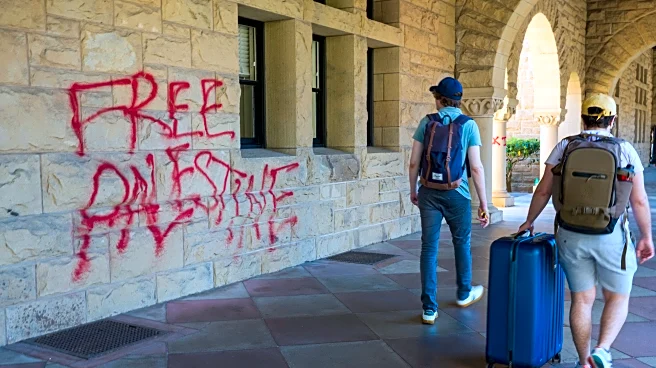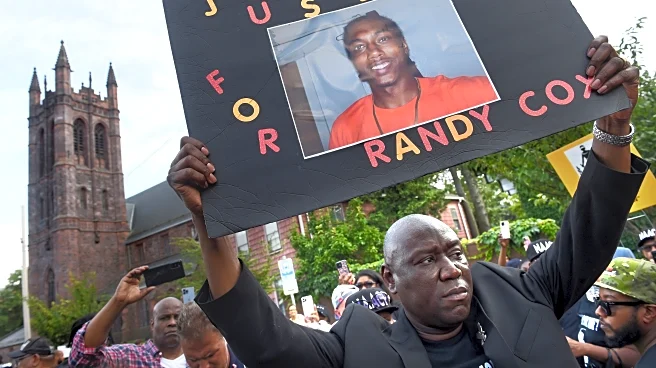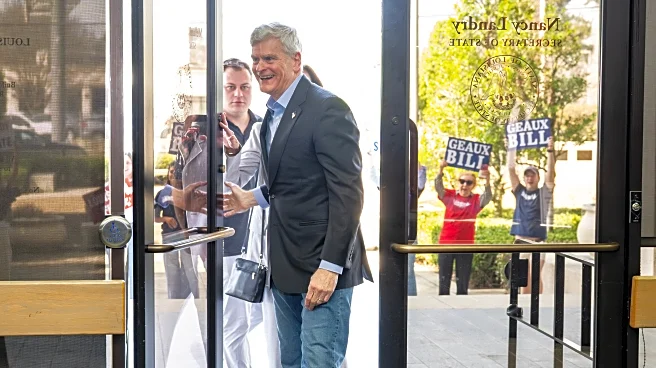What's Happening?
Israel has announced that it will not permit Turkish troops to participate in an international force proposed by the United States to oversee a ceasefire in the ongoing Israel-Hamas conflict in Gaza. This decision was confirmed by Israeli Foreign Minister
Gideon Saar, who cited longstanding hostility from Turkish President Recep Tayyip Erdogan towards Israel as the reason for the exclusion. The U.S.-brokered ceasefire agreement, which was facilitated by President Trump, outlines the creation of an International Stabilization Force to support Palestinian police forces and ensure stability in Gaza. However, the agreement does not specify which countries will contribute troops. The U.S. has indicated that it will work with Arab and international partners to develop this force, consulting with Jordan and Egypt, who have experience in the region. The force's mandate remains a point of discussion, with some nations emphasizing the need for a peacekeeping rather than a peace-enforcing role.
Why It's Important?
The exclusion of Turkey from the international force in Gaza highlights the complex geopolitical dynamics in the region. Turkey, a significant contributor of aid to Gaza, has expressed readiness to support peacekeeping or humanitarian efforts. However, its close ties with Hamas and critical stance towards Israel have led to its exclusion. This decision could impact Turkey's diplomatic relations and its role in Middle Eastern peace processes. For Israel, ensuring that participating countries are perceived as neutral or supportive is crucial for the success of the ceasefire and stabilization efforts. The U.S. plays a pivotal role in mediating these international collaborations, and its ability to secure a U.N. mandate or international authorization for the force will be critical. The situation underscores the delicate balance of power and the need for careful diplomatic negotiations to achieve lasting peace in the region.
What's Next?
The next steps involve clarifying the mandate of the proposed international force and securing commitments from countries willing to participate. The U.S. is working to obtain a U.N. mandate or other international authorization for the force, which will be crucial for its legitimacy and effectiveness. Countries considering participation will need assurance that their role will be focused on peacekeeping rather than enforcing peace, which could deter involvement. Israel's decision to exclude Turkey may lead to diplomatic discussions or tensions, particularly given Turkey's interest in supporting Gaza. The international community will be watching closely to see how these developments unfold and whether the ceasefire can lead to a sustainable peace agreement.


















